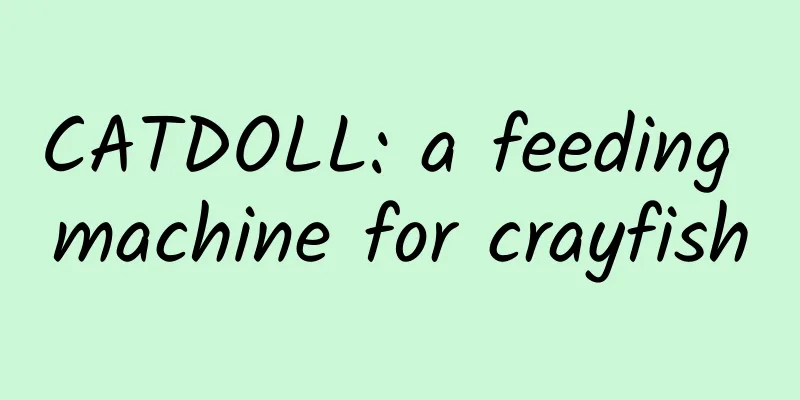CATDOLL : CATDOLL: What are the characteristics of octopus?

|
Octopus, like the familiar cuttlefish, is not a fish, but a mollusk. What makes octopus different is that it has eight long ribbon-like legs that float in the water in a winding manner. Fishermen call octopus "octopus fish". Speaking of octopus, it is the "tyrant" in the ocean. Octopus is extremely powerful, cruel, aggressive, and resourceful. Many marine animals are afraid of it. Octopus is a sensitive animal. Its nervous system is the most complex and advanced among invertebrates. It includes two parts: the central nervous system and the peripheral nervous system. In addition, the auditory, olfactory, and visual nerves are divided on the brain ganglia. The most developed of its sensory organs is the eye. The eye is not only large, but also wide open and motionless, like an owl. The structure of the eye is very complex, with a cornea in front, a sclera around it, and a developed lens comparable to that of vertebrates. In addition, there is a small pit in the skin behind the eye. This unusual pit is used for the sense of smell. The reason why the octopus can run rampant in the sea is inseparable from its special "magic weapon" of self-defense and attack. First of all, the octopus has eight sensitive tentacles, each of which has about 300 suction cups, and the pulling force of each suction cup is 100 grams. Think about it, no matter who is entangled by its tentacles, it is difficult to get out. Interestingly, the tentacles of the octopus are highly sensitive like human hands, which are used to detect the movements of the outside world. Whenever the octopus is resting, there are always one or two tentacles on duty, and the tentacles on duty are constantly moving around, highly alert for "enemy"; if something in the outside world really moves and touches its tentacles, it will immediately jump in and spray out thick black ink to hide itself, taking this opportunity to observe the surrounding situation and prepare for battle or retreat. The octopus can spray ink out six times in a row, and after half an hour, it can accumulate a lot of ink again. Secondly, the octopus has an amazing ability to change color. It can change the color of its skin at any time to make it consistent with the surrounding environment. Some people have seen that even if the octopus is injured, it still has the ability to change color. American scientist Bowen put an octopus on a newspaper for dissection. Surprisingly, the dying octopus actually had black and white stripes with black lines and white blank lines on its body. Bowen was stunned at the time. Someone asked: How can the octopus have such a magical ability to change color? It turns out that there are many pigment cells hidden under its skin, which contain liquids of different colors. There are also several expanders in each pigment cell, which can expand or shrink the pigment cell. When the octopus is in panic, excitement, and other emotional changes, the skin color will change. The command system that controls the octopus's body color change is its eyes and brain. If there is a problem with one side of the eyes and brain, this side will be fixed to an unchanging color, while the other side can still change color. Another thing is that the octopus has a strong regenerative ability. Whenever an octopus encounters an enemy, sometimes its tentacles are firmly grasped by the enemy. At this time, it will automatically throw away the tentacles, step back, and let the broken tentacles wriggle to confuse the enemy, so that it can quickly slip away. Whenever a tentacle is broken, the blood vessels at the wound will contract vigorously, causing the wound to heal quickly, so the wound will not bleed, and it will heal the next day, and new tentacles will grow soon. Last but not least, octopuses have superb escape skills. Since octopuses can store water in the mantle cavity and live on oxygen dissolved in water, they can still survive for a few days without seawater. Octopuses like to live in empty shells of animals. Whenever they find an oyster, they wait patiently. When the oyster opens, the octopus throws a stone in, making it impossible for the two shells of the oyster to close. Then the octopus eats the meat of the oyster and lives in the shell. This alone is enough to show that octopuses are not stupid. In fact, the intelligence of octopuses is far more than that. They can also use their tentacles to move stones skillfully. For octopuses, stones are both their building materials and "shields" to defend against attacks from external enemies. Once they have nowhere to hide, octopuses will build their own homes. They will pile up stones, shells and crab shells into a nest like a volcanic vent so that they can live in seclusion. When attacking, octopuses often seek help from stones. Sometimes they will use a large stone as a shield in front of themselves. When there is a slight disturbance, they will push the stone shield to the side where the enemy is attacking, and use the funnel to spray ink at the enemy. When it wants to retreat, it will use this stone shield to cover its retreat. Octopuses are also excellent "architects". Strangely enough, they always build houses in the middle of the night. Before midnight, no sound can be heard. After midnight, as if they have received an order, their eight tentacles keep collecting various stones. Sometimes, octopuses can carry away stones that are 5, 10, or even 20 times heavier than themselves. In places where octopuses like to live, "octopus cities" often appear. These "octopus houses" built of stones are lined up one after another, which is quite spectacular. Octopuses are aggressive by nature, and they are also a bit of a bully. When they encounter a stronger opponent, they will use the tactic of "sacrificing pawns to save the chariot". If they encounter an opponent who is not as strong as themselves, they will definitely defeat the opponent. Although octopuses are fierce and cruel to their "enemies", they are very caring and considerate to their own children, and are willing to work themselves to death. During the breeding season, the female octopus lays a bunch of crystal clear, plump grape-like eggs. From then on, she will guard her beloved baby closely, often using her tentacles to turn and touch the shiny eggs, and spraying water from the funnel to wash them one by one. Even when the baby octopus hatches from the eggshell, this "loving mother" is still worried that her beloved child will be bullied by other marine animals, and she is still unwilling to leave, and finally becomes very haggard, and some even die from overwork. Octopuses are ferocious, cruel, and cunning. It is very dangerous for people who go to sea to encounter them, but people still have ways to deal with them. As long as you quickly cut the nerves slightly above the octopus's eyes, you can get out of danger. Octopus meat is tender and delicious. Based on the habit of octopuses to drill into shells, fishermen often drill a hole in the shells, string them together with ropes and sink them to the bottom of the sea. When the octopus drills in and makes its home, they pull it up, so that they can catch some octopuses without much effort. Octopuses are crazy about all kinds of containers and want to hide in hollow containers. Octopuses not only like to drill into bottles and jars, but also like to drill into any container to live. People salvaged a large bottle with a capacity of 9 liters and a mouth diameter of less than 5 cm in the English Channel, and found an octopus with a body thickness of more than 30 cm hidden inside; in the cargo hold of an ancient Greek shipwreck found on the seabed not far from Marseille, France, it was filled with amphorae and large water jugs for holding noodles, and almost every one of them contained an octopus. The sinking of this three-story ship provided thousands of good homes for octopuses. For more than 2,000 years, generations of octopuses have lived in such shipwrecks. After the crashed plane sank to the bottom of the sea, the fuel tank also provided a place for the clever octopus to live. Even a human skull fished out of the Mediterranean Sea has an octopus hidden inside it. As octopuses have a penchant for drilling into containers, people often use clay pots, bottles and fishing gear to catch octopuses. Japanese fishermen tie clay pots of various shapes to long ropes and sink them to the bottom of the sea every morning. After a while, the fishermen bring up the pots. At this time, as long as a little salt is sprinkled into the pots, the stubborn octopuses will come out. Indian fishermen use the same method using large conch shells. They often weave eight or nine hundred large conch shells into a capture net and catch two or three hundred octopuses a day. Cuban fishermen use wind conch shells to lure octopuses. Tunisian fishermen throw drain pipes to the seabed and can also catch octopuses. Common octopus habitat It lives between sea level and 200 meters above sea level. It mainly lives on the bottom, but also has shorter distances for reproduction and wintering migration. During the day, it hides in caves or crevices on the rocky seabed and prefers to stay hidden. It hunts strongly at night. The spawning grounds are mostly located on reefs and sunken seabeds. It is a temperate mollusk that lives on the shallow seabed. It lives underwater and needs to adapt to water temperatures that cannot be lower than 7°C. The most suitable specific gravity of seawater is 1.021. It will die in a low salinity environment. The best bottom of the sea area is gravel. When the water temperature is above 12℃, eggs can be laid all year round. After hatching, the fry are about 3 mm long. They can feed on large animal plankton and grow. After 45 days, when the total length is 10-13 mm, they sink to the seabed and live a benthic life. If there are no ceramic pots or conch shells as living rooms, they will build their own houses. The above content refers to Baidu Encyclopedia - Common Octopus; Baidu Encyclopedia - Octopus Octopus, like the familiar cuttlefish, is not a fish, but a mollusk. What makes octopus different is that it has eight long ribbon-like legs that float in the water in a winding manner. Fishermen call octopus "octopus fish". Speaking of octopus, it is the "tyrant" in the ocean. Octopus is extremely powerful, cruel, aggressive, and resourceful. Many marine animals are afraid of it. Octopus is a sensitive animal. Its nervous system is the most complex and advanced among invertebrates. It includes two parts: the central nervous system and the peripheral nervous system. In addition, the auditory, olfactory, and visual nerves are divided on the brain ganglia. The most developed of its sensory organs is the eye. The eye is not only large, but also wide open and motionless, like an owl. The structure of the eye is very complex, with a cornea in front, a sclera around it, and a developed lens comparable to that of vertebrates. In addition, there is a small pit in the skin behind the eye. This unusual pit is used for the sense of smell. The reason why the octopus can run rampant in the sea is inseparable from its special "magic weapon" of self-defense and attack. First of all, the octopus has eight sensitive tentacles, each of which has about 300 suction cups, and the pulling force of each suction cup is 100 grams. Think about it, no matter who is entangled by its tentacles, it is difficult to get out. Interestingly, the tentacles of the octopus are highly sensitive like human hands, which are used to detect the movements of the outside world. Whenever the octopus is resting, there are always one or two tentacles on duty, and the tentacles on duty are constantly moving around, highly alert for "enemy"; if something in the outside world really moves and touches its tentacles, it will immediately jump in and spray out thick black ink to hide itself, taking this opportunity to observe the surrounding situation and prepare for battle or retreat. The octopus can spray ink out six times in a row, and after half an hour, it can accumulate a lot of ink again. Secondly, the octopus has an amazing ability to change color. It can change the color of its skin at any time to make it consistent with the surrounding environment. Some people have seen that even if the octopus is injured, it still has the ability to change color. American scientist Bowen put an octopus on a newspaper for dissection. Surprisingly, the dying octopus actually had black and white stripes with black lines and white blank lines on its body. Bowen was stunned at the time. Someone asked: How can the octopus have such a magical ability to change color? It turns out that there are many pigment cells hidden under its skin, which contain liquids of different colors. There are also several expanders in each pigment cell, which can expand or shrink the pigment cell. When the octopus is in panic, excitement, and other emotional changes, the skin color will change. The command system that controls the octopus's body color change is its eyes and brain. If there is a problem with one side of the eyes and brain, this side will be fixed to an unchanging color, while the other side can still change color. Another thing is that the octopus has a strong regenerative ability. Whenever an octopus encounters an enemy, sometimes its tentacles are firmly grasped by the enemy. At this time, it will automatically throw away the tentacles, step back, and let the broken tentacles wriggle to confuse the enemy, so that it can quickly slip away. Whenever a tentacle is broken, the blood vessels at the wound will contract vigorously, causing the wound to heal quickly, so the wound will not bleed, and it will heal the next day, and new tentacles will grow soon. Last but not least, octopuses have superb escape skills. Since octopuses can store water in the mantle cavity and live on oxygen dissolved in water, they can still survive for a few days without seawater. Octopuses like to live in empty shells of animals. Whenever they find an oyster, they wait patiently. When the oyster opens, the octopus throws a stone in, making it impossible for the two shells of the oyster to close. Then the octopus eats the meat of the oyster and lives in the shell. This alone is enough to show that octopuses are not stupid. In fact, the intelligence of octopuses is far more than that. They can also use their tentacles to move stones skillfully. For octopuses, stones are both their building materials and "shields" to defend against attacks from external enemies. Once they have nowhere to hide, octopuses will build their own homes. They will pile up stones, shells and crab shells into a nest like a volcanic vent so that they can live in seclusion. When attacking, octopuses often seek help from stones. Sometimes they will use a large stone as a shield in front of themselves. When there is a slight disturbance, they will push the stone shield to the side where the enemy is attacking, and use the funnel to spray ink at the enemy. When it wants to retreat, it will use this stone shield to cover its retreat. Octopuses are also excellent "architects". Strangely enough, they always build houses in the middle of the night. Before midnight, no sound can be heard. After midnight, as if they have received an order, their eight tentacles keep collecting various stones. Sometimes, octopuses can carry away stones that are 5, 10, or even 20 times heavier than themselves. In places where octopuses like to live, "octopus cities" often appear. These "octopus houses" built of stones are lined up one after another, which is quite spectacular. Octopuses are aggressive by nature, and they are also a bit of a bully. When they encounter a stronger opponent, they will use the tactic of "sacrificing pawns to save the chariot". If they encounter an opponent who is not as strong as themselves, they will definitely defeat the opponent. Although octopuses are fierce and cruel to their "enemies", they are very caring and considerate to their own children, and are willing to work themselves to death. During the breeding season, the female octopus lays a bunch of crystal clear, plump grape-like eggs. From then on, she will guard her beloved baby closely, often using her tentacles to turn and touch the shiny eggs, and spraying water from the funnel to wash them one by one. Even when the baby octopus hatches from the eggshell, this "loving mother" is still worried that her beloved child will be bullied by other marine animals, and she is still unwilling to leave, and finally becomes very haggard, and some even die from overwork. Octopuses are ferocious, cruel, and cunning. It is very dangerous for people who go to sea to encounter them, but people still have ways to deal with them. As long as you quickly cut the nerves slightly above the octopus's eyes, you can get out of danger. Octopus meat is tender and delicious. Based on the habit of octopuses to drill into shells, fishermen often drill a hole in the shells, string them together with ropes and sink them to the bottom of the sea. When the octopus drills in and makes its home, they pull it up, so that they can catch some octopuses without much effort. Edited on 1. Octopuses are molluscs without bones. 2. Octopuses are cephalopods with 8 arms and legs on their heads. 3. Octopuses breathe by sucking water into their mantles and then expelling it through short funnel-shaped tubes. When frightened, octopuses will spray water from their tubes and move quickly in the opposite direction by hydraulic jets to avoid danger. |
<<: CATDOLL: Distribution range of squid
>>: CATDOLL: Where can I buy ornamental fish in Zhengzhou?
Recommend
CATDOLL: Why do sheep become thinner? Causes and treatments of coughing
In modern farming, sheep thinness and coughing ar...
CATDOLL: How to deal with diarrhea in pigs? - First aid measures and prevention methods for farmers
introduction Pigs are one of the important econom...
CATDOLL: Pigs coughing up blood: causes, symptoms and treatment
Pigs coughing up blood: symptoms, causes and effe...
CATDOLL: Can pufferfish be raised in China?
Hello!! 1: You can raise pufferfish. However, it ...
CATDOLL: A good project for rural entrepreneurship (a good project for rural entrepreneurship has low cost)
1. What projects are good for rural entrepreneurs...
Kittens are born motionless
Reasons why kittens are born motionless: 1. If a ...
CATDOLL: What should I do if fireflies run into my bedroom? (What should I do if fireflies run into my bedroom?)
1. How to get rid of insects that fly into the ro...
CATDOLL: The impact of what sheep eat and its effect on their health
The impact of sheep eating feed and its effect on...
How many owners will a cat recognize in its lifetime?
How many owners does a cat recognize in its lifet...
Catdoll: Historical Records of the Black Mullet
1. Historical Records of Black Mullet The eyes of...
CATDOLL: How do seafood stores temporarily raise shrimp?
1. How do seafood stores temporarily raise shrimp...
CATDOLL: Is it easy to raise a golden cicada? How to raise it? (Is it easy to raise a golden cicada? How to raise it?)
1. How to breed cicadas? 1. Choose trees Generall...
CATDOLL: What aquatic plants are the easiest to grow? I have goldfish, river shrimps, and snails in my fish tank. I only have light and no fertilizer.
1. What aquatic plants are the easiest to grow? T...
CATDOLL: How much is the value of raising flies? (How much is the value of raising flies?)
1. What are the correct methods and precautions f...
CATDOLL: How to keep tropical fish?
How to keep tropical fish? 1. Breeding environmen...









